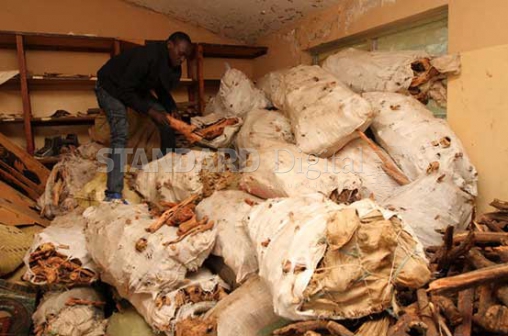×
The Standard e-Paper
Home To Bold Columnists

NAIROBI: A fresh smuggling war is going on right under the nation’s nose, the Kenya Forestry Service (KFS) has warned. The battle ground has been well defined in a winner takes all phenomenon. Unfortunately, not enough is being done and soon, all that will remain will be relics of a war that should have been won.
Not even the scent of the much sought after sandalwood will be left to tell the story of consistent and methodical cutting of an endangered species.